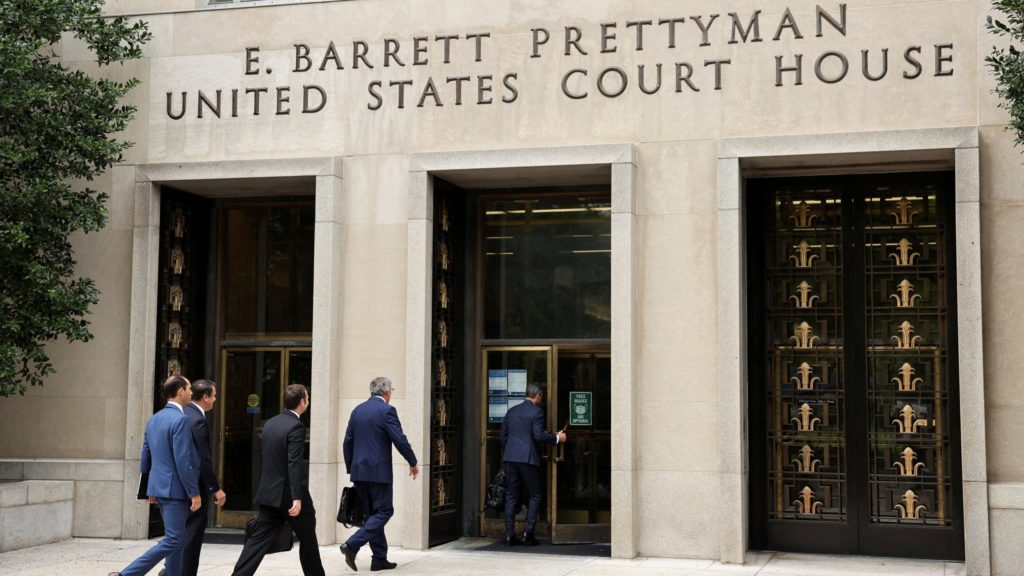Paula "Paulette" Harlow of Kingston, Massachusetts, became the 10th and final pro-life activist to be sentenced for her participation in an October 2020 blockade of a Washington abortion clinic.
On May 31, U.S. District Judge Colleen Kottar-Kotelly sentenced Harlow to 24 months in prison for violating the federal Freedom of Access to Clinic Entrances Act, or FACE Act, and a charge of conspiracy against rights.
Final sentencing of pro-life activist
Harlow, 75, a grandmother who uses a wheelchair because of illness, has been on home confinement since her conviction last November. Prosecutors had recommended a sentence of just under three years.
A DC judge just sentenced 75-year-old Paulette Harlow, who is in poor health, to 2 years in prison for praying outside an abortion clinic. Her husband fears she might die there. pic.twitter.com/SHg0kHmdRz
— Joel Berry (@JoelWBerry) June 3, 2024
Like her sister Jean Marshall, also of Kingston, she is a Secular Franciscan. Marshall, 74, was earlier sentenced to 24 months in prison for the same blockade.
The blockade, which was livestreamed on Facebook, occurred at Washington Surgi-Clinic. Lauren Handy, who led it, received worldwide attention for a later press conference in which she said she had retrieved a box from that clinic containing 115 aborted fetuses and five late-term infant corpses.
No one was charged for that, and the five corpses were retrieved by the District of Columbia medical examiner's office. The box of fetal remains was buried in a private cemetery in West Virginia, presided over by a Catholic priest.
Blockade details
According to court documents, Harlow, on Oct. 22, 2020, "jostled past three employees attempting to keep the flood of obstructionists out. With a bike lock affixed to her neck, (she) then chained herself to four of her co-conspirators and blocked the main entrance to the clinic's medical procedure area."
The "melee," as prosecutors described it, began after Jay Smith shoved a door open, forcing a nurse to fall backward, spraining an ankle.
The clinic manager "rushed from the medical procedure area into the waiting room with a broom to attempt to erect a barrier separating two patients from Handy, Smith, and others. Joan Andrews Bell "slipped through an opening, dragging Harlow with her while Smith fought with the nurse."
The court documents continue, "As the clinic manager attempted to stand her ground, a much larger Harlow purposefully fell on top ... forcefully shoving the clinic manager into a waiting-room chair." Prosecutor described this as "body slamming." Harlow "then slid to the floor" which allowed the other blockaders to enter.
When a police officer with a power saw "attempted to remove the chain connecting Harlow, Bell, Smith, and (John) Hinshaw, Harlow and Marshall insisted that (the officer) would injure them if he tried. Harlow, prosecutors stated, "then tried a different tack, lecturing (the officer) that he "ha(s) a conscience" that should lead him to "let (the conspirators) stay" in the clinic to "save lives." He eventually used the saw.
Handy, 30, of Alexandria, Virginia, received the longest sentence, 57 months, becoming the first person in the nation to be sentenced under the FACE Act. Her attorneys at the Thomas More Society have filed an appeal in the District of Columbia Court of Appeals, and have said their ultimate goal is to get the FACE Act overturned by the Supreme Court.
Others sentenced
Others sentenced in U.S. District Court for the District of Columbia were:
William Goodman, 54, of the Bronx, New York, 27 months; Herb Geraghty, 27, of Pittsburgh, 27 months; Jonathan Darnel, 42, Arlington, Virginia, 34 months; Heather idoni, 59, of Linden, Michigan, 24 months; Bell, 76, of Montague, New Jersey, 27 months; Hinshaw, 69, of Levittown, New York, 21 months. All sentences include an additional three years of supervised release.
In March 2023, Smith, 34, of Freeport, New York, entered a guilty plea and received a 10-month sentence.
The FACE Act
The FACE Act, adopted in 1994, prohibits "violent, threatening, damaging, and obstructive conduct intended to injure, intimidate, or interfere with the right to seek, obtain, or provide reproductive health services."
There are FACE Act sentencings ahead in July over a clinic blockade in Mount Juliet, Tennessee, in 2021 and a September trial for a clinic blockade in Sterling Heights, Michigan, in August 2020. In addition, the Justice Department has announced it is seeking steep fines and penalties against seven pro-life activists involved in blockades at two abortion clinics in Ohio in June 2021.
The Catholic Church opposes abortion because it holds that all human life is sacred from conception to natural death. However, the church also makes clear that all advocacy for justice must use only moral means.
In his 1993 encyclical, "Veritatis Splendor," St. John Paul II said, "Though it is true that sometimes it is lawful to tolerate a lesser moral evil in order to avoid a greater evil or in order to promote a greater good, it is never lawful, even for the gravest reasons, to do evil that good may come of it." He said a person cannot "intend directly something which of its very nature contradicts the moral order ... even though the intention is to protect or promote the welfare of an individual, of a family or of society in general."

